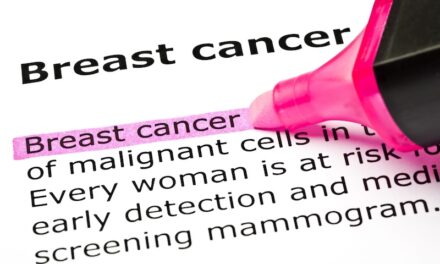Digital health company Medneon, Cupertino, Calif, has launched a groundbreaking clinicogenetic patient registry to investigate whether identifying high-risk individuals and managing their genetic mutations over time can prevent hereditary breast cancer.
The company’s Informed Genetic Annotated Patient Registry (iGAP) will include both breast cancer patients and their unaffected at-risk family members, as well as other high-risk individuals. The registry debuted at the recent annual meeting of the American Society of Breast Surgeons (ASBrS).
iGAP is an IRB-approved database that will capture information regarding breast cancer risk assessment, genetic testing utilization, and the impact of genetic information on treatment practices and patient outcomes. Researchers plan to enroll at least 10,000 women this year. Over time the registry will expand to include other conditions with hereditary associations.
iGAP was developed as a follow-on to a recent study conducted by a team of researchers led by Peter Beitsch, MD, chief physician at the Dallas Medical Group, a specialty practice in cancer and surgical oncology.1 The researchers found that nearly half of breast cancer patients with a genetic mutation are being missed by current testing guidelines. It is believed that nearly 5 million US women have a genetically high risk of developing breast cancer, but 90% have not been identified. As a result of the study, ASBrS has updated its guidelines to recommend that all patients diagnosed with breast cancer be offered genetic testing to check for inherited mutations.
“Now that we’re moving toward offering genetic testing to the majority of breast cancer patients, we want to take it a step further to include women who don’t have breast cancer yet, but who may have a high risk of developing it based on certain risk-assessment models,” says Beitsch, iGAP coprincipal investigator.
“The easiest way to identify these additional high-risk women is cascade testing their unaffected relatives,” says oncologist Rakesh Patel, MD, iGAP coprincipal investigator. “We want to see if this will provide actionable insights that could prevent the disease all together, or at least enable detection at much earlier stages.”
A key component of the registry will be correlating an individual’s genetic test results with clinical and patient-reported outcomes. The registry will take into account patients’ clinical histories, and will follow the patients over time to assess how genetic test results influence their risk and medical management decisions. In addition, participation in the registry will make possible ongoing communications with participants, so that they can be informed if their risk of developing breast cancer changes as research evolves.
“Our goal is to help individuals be more proactive about their health by informing registry participants, their family members, and their healthcare providers about rapidly changing risk and management guidelines,” says Kamal Gogineni, cofounder of Medneon. “This is a key mission of the iGAP registry and something we believe will contribute to the precision prevention of hereditary breast cancer.”
For further information, visit Medneon.
Reference
- Beitsch P, Whitworth PW, Hughes K, et al. Underdiagnosis of hereditary breast cancer: are genetic testing guidelines a tool or an obstacle? J Clin Oncol. 2019;37(6):453–460; doi: 10.1200/jco.18.01631.





